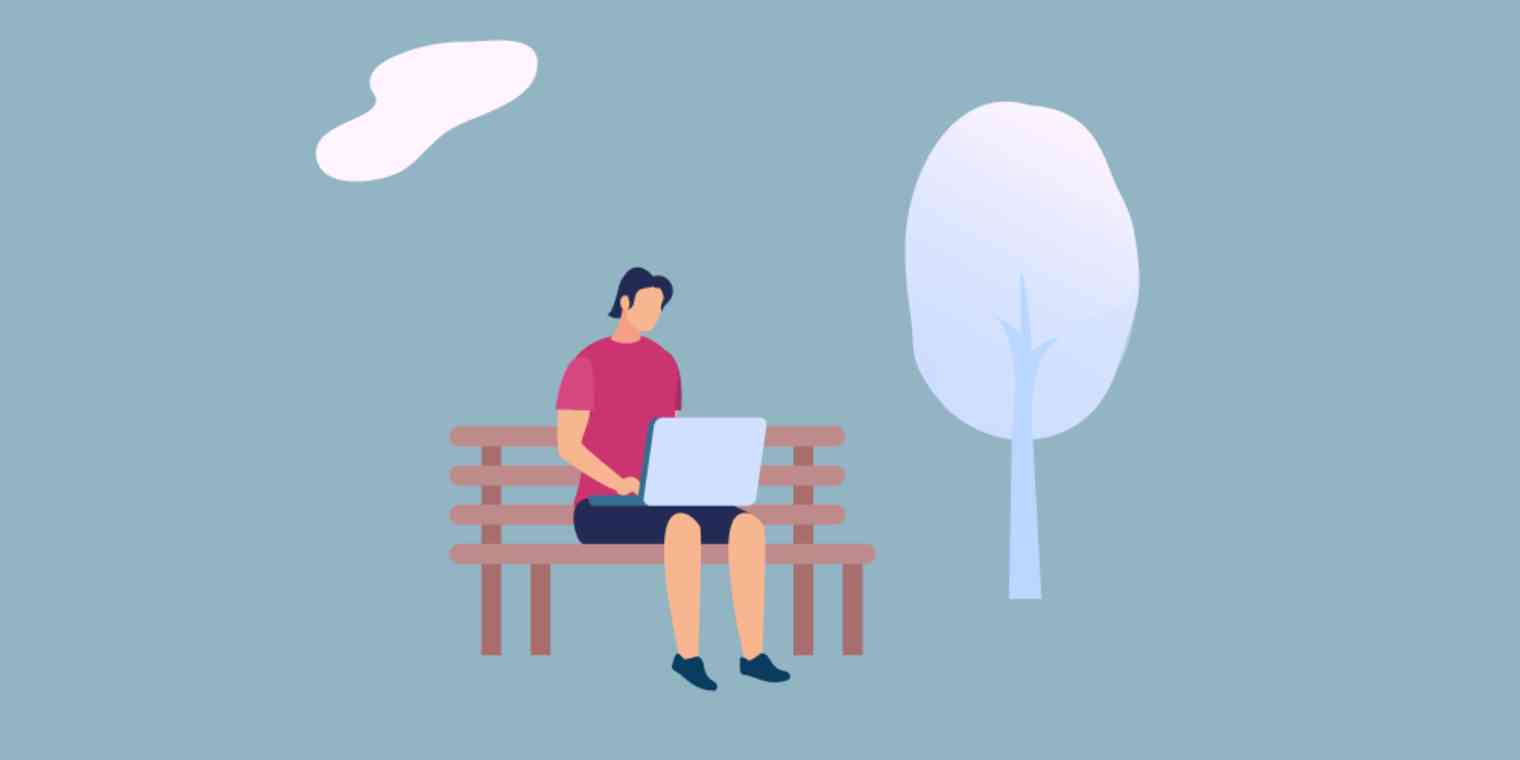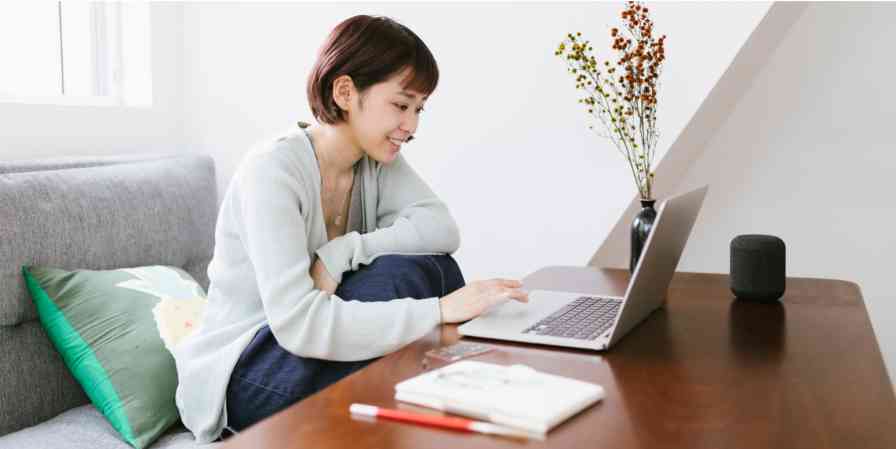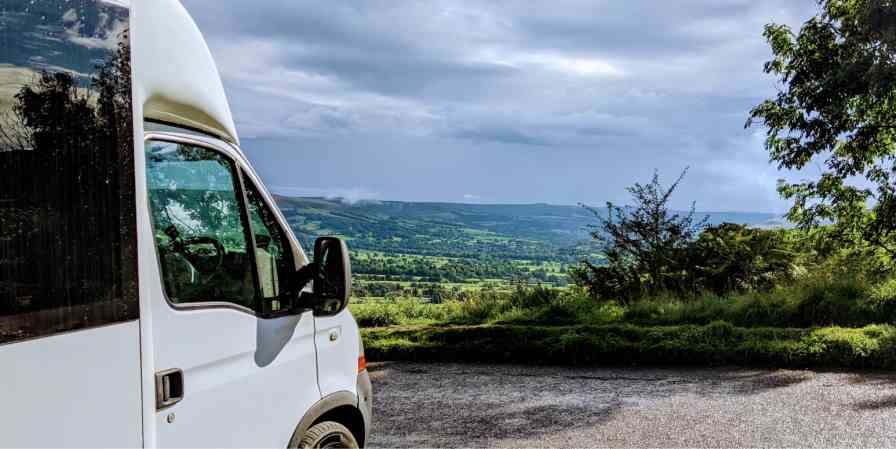Four of my co-workers get work done sitting in bed. Three work regularly at their local Whole Foods. Another loves working in airport terminals.
This might sound odd, but think about it: where are you most productive? There's a good chance it isn't the office.
We recently compiled the Remote Work Report by Zapier, a survey of American knowledge workers. Our data shows 32 percent of American knowledge workers feel most productive in an office. The rest feel most productive working other places: 42 percent get the most done at home, 11 percent find productivity at a co-working space, and 9 percent are most efficient while working outside.
Most people don't get to pick where they work: they are assigned a desk at the office and that's the end of it. That changes if you get a remote job—you can work wherever you want. Zapier is a remote-only company, and everyone comes to a realization a few months in—you can get work done anywhere. Here's my co-worker Morgan:
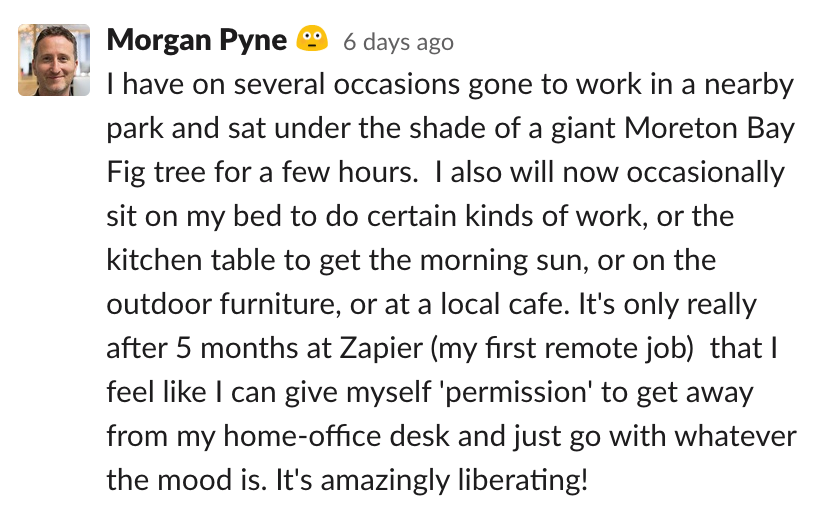
Employees here get a generous budget for a home office setup including the desk, chair, and monitor of their choice. Even so, most everyone ends up working away from that desk at least some of the time. I, for example, love biking with my laptop over to the local library when I need to focus. My co-workers Breetel and Fran prefer Whole Foods.
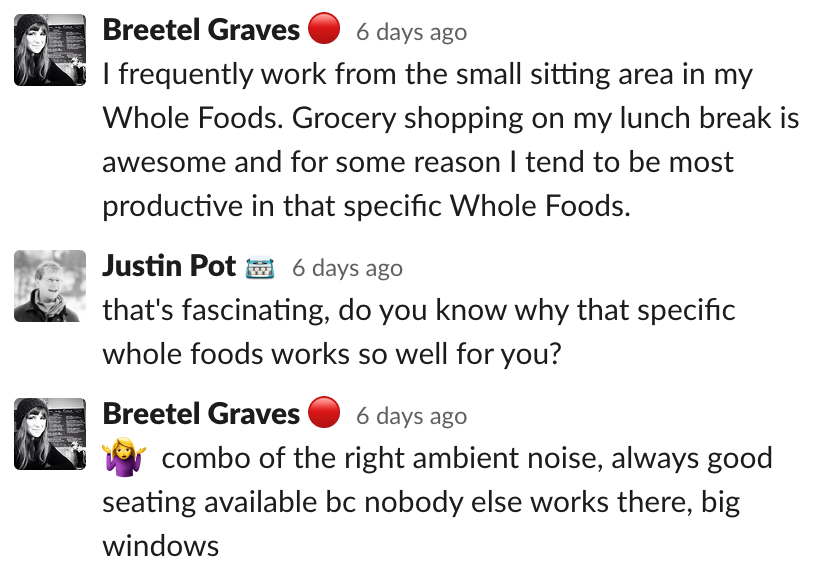

I think of these places as secondary work spaces, and you can find them anywhere. If you work from home you likely have several choices readily available, like the kitchen or your couch. If you work in a traditional office there's probably still some communal space you can migrate to when you need a change of scene (or to get some time away from interruptions). And everyone who uses a laptop to get things done can occasionally work away from the home or office.
If you've never thought about a secondary work space, here are some benefits to that practice.
Feeling stuck? Switch workspaces
Insanity is doing the same thing, over and over again, but expecting different results.
Albert Einstein never said this. I keep trying to point this out, but the misinformation persists. I should probably stop expecting different results.
What was I talking about? Oh yeah, feeling stuck. Sometimes making progress on a task feels impossible. This is when I recommend moving away from your desk and over to one of your secondary workspaces.
I, for example, will bike to the library to write when I can't seem to make any progress on a particular article. I set up my laptop on a desk by the window, surrounded by books and the sounds of my fellow patrons, and the words usually start flowing. The change of scenery dislodges my brain.
Still feeling stuck? Here's how to start doing a thing when you really, really don't want to.
Try different places for different tasks
Rotate through a few secondary workspaces and you'll start to notice that different places work better for certain kinds of tasks. I, for example, need to sit at my desk in order to do serious research but find that the library or a coffee shop works well for writing once that research is done. My co-worker Jenny, meanwhile, uses her couch for writing.
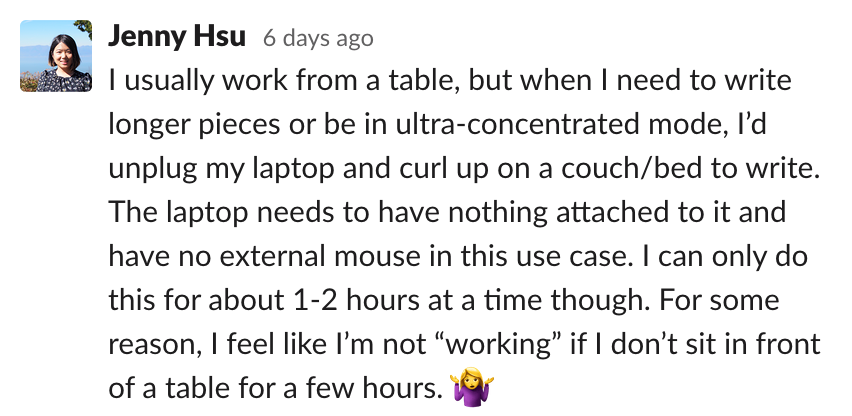
I highly recommend trying out different secondary workspaces for different tasks and seeing what works. You might find out that you're able to get more done.
Another idea is to switch workspaces depending on the time of day or energy level. My co-worker Beth, for example, switches at the end of the day.

These are just a few things to keep in mind—I'm sure you can think of others. The point is to attempt working in a variety of different places, with these ideas in mind, to discover what works best for you.
Things to consider when deciding where to work
Finding out where you get the most work done is usually a matter of trying out a few different places, but I've noticed there are some factors to keep in mind when thinking about what will work best for you.
Ambient noise. The science of background noise shows the right sounds can be beneficial to both concentration and creativity. Some people like the blurred, overlapping conversations of a coffee shop; others like natural sounds, like birds chirping or a creek flowing. Others, like my co-worker Jason, have different preferences.
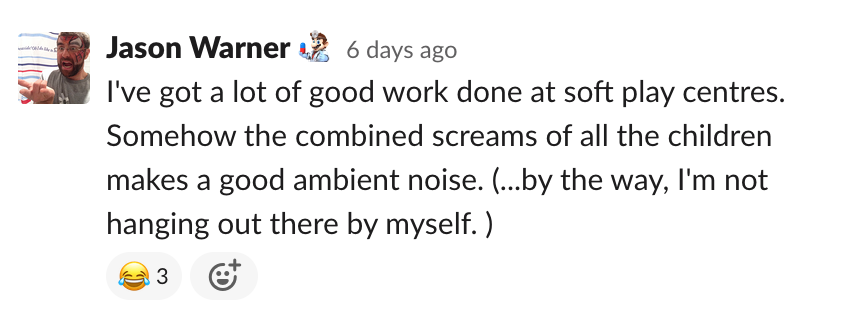
Comfort. Even a perfect ergonomic setup at your desk isn't comfortable all day, which is why occasionally changing things up is a good idea. For some people this means somewhere more comfortable, like a cozy chair or even your bed. Others need a chance to stretch out for a while—standing desks work for this, but so does the kitchen counter or the bar at a coffee shop.
Lighting. I live in the Pacific Northwest of the United States, and natural light is scarce here in the winter. I'll move around my house, following what little precious sunlight leaks through the clouds. It helps. Your relationship with light is likely different than mine—maybe you get more done in dim rooms, for example. Know what your preference is.
Access to WiFi and electricity. Sometimes you're going to need internet access to do your job, which is why any secondary workspace away from your house should probably have WiFi and electrical outlets. Other times, however, being away from WiFi can be liberating, because it means the usual distractions of the internet are not available. Even not having electricity can be a plus sometimes, because it gives you a built-in deadline for getting things done.
I think you get the idea by now. Working somewhere besides your desk can help you get more done. Don't feel limited! You can work literally anywhere.

Wait...what?
